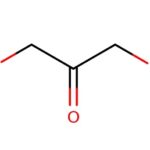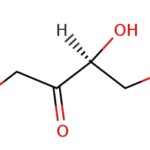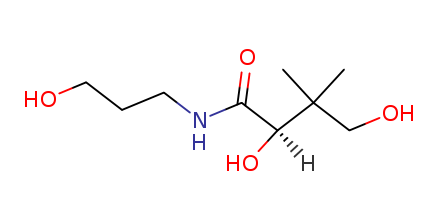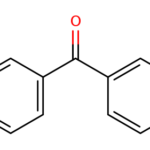Introduction
Magnesium Ascorbyl Phosphate is a remarkable and reliable ingredient in the realm of skincare. This water-soluble compound, derived from ascorbic acid, boasts exceptional stability, safety, and non-irritating properties. Known by its chemical name, L-ascorbyl-2-phosphate magnesium, it undergoes enzymatic hydrolysis within the skin, transforming into ascorbic acid and exhibiting significant physiological and pharmacological effects.
Renowned for its efficacy, Magnesium Ascorbyl Phosphate is widely employed in modern functional whitening cosmetics. By harnessing the power of free radicals, it actively promotes the synthesis of collagen, thereby accelerating the skin’s rejuvenation process. Its potent abilities surpass those of conventional additives, as it significantly impedes melanin synthesis, effectively preventing the formation of undesirable spots, as well as reducing the appearance of fine lines and wrinkles.
Characteristics
Magnesium Ascorbyl Phosphate showcases distinctive qualities that distinguish it within the realm of skincare. This stabilized variant of vitamin C possesses water solubility while exhibiting an affinity for oil, allowing for optimal skin penetration. Alongside providing comparable benefits to pure vitamin C, it excels in deeply hydrating the skin. Although its antioxidant potency may not match that of pure vitamin C, it remains remarkably effective. Importantly, its efficacy does not rely on a low pH, ensuring broad tolerance among users. Moreover, its soothing characteristics have demonstrated potential in reducing blemishes, adding to its allure in skincare regimens.
Description and Propeties
Magnesium Ascorbyl Phosphate, known as MAP, is a variant of vitamin C that dissolves in water. It is formed by combining pure ascorbic acid with a magnesium salt, which enhances its stability in products containing water. Although MAP remains stable even in the presence of light and air, prolonged exposure to these elements can diminish its effectiveness.
Unlike other water-soluble forms of vitamin C, magnesium ascorbyl phosphate has the unique quality of being lipophilic, meaning it has an affinity for oils. This characteristic allows it to penetrate the skin effectively. However, the extent to which it converts to ascorbic acid within the skin is still a topic of debate. Thanks to its oil-loving nature and superior ability to deeply hydrate the skin compared to ascorbic acid, MAP is renowned for being one of the most hydrating forms of vitamin C.
Research indicates that using magnesium ascorbyl phosphate in concentrations ranging from 2-5% can significantly improve the appearance of uneven skin tone. Concentrations between 5-10% have more noticeable benefits for reducing discolorations, including post-breakout marks, while also enhancing skin firmness and texture. Even lower concentrations, as low as 0.1%, still provide antioxidant benefits.
One advantage of magnesium ascorbyl phosphate over ascorbic acid is that it does not require a low pH to exhibit its effectiveness. It performs optimally at pH levels between 5-6, as exceeding a pH of 6 can lead to discoloration of this ingredient.
The soothing properties of magnesium ascorbyl phosphate might contribute to reducing the occurrence of blemishes by calming irritants derived from oil-based saccharides. However, limited comparative research makes it challenging to determine how other forms of vitamin C would perform in similar circumstances.
In the realm of cosmetics, the topical application of magnesium ascorbyl phosphate is deemed safe.
Applications
- Suncare and after-sun products
- Makeup products
- Skin lightening products
- Anti aging products
- Creams and lotions
The remarkable ability of MAP to hinder tyrosinase activity results in effective reduction of melanin production, thus providing a valuable solution for brightening dark skin and areas with excessive pigmentation. Notably, a study suggests that achieving optimal inhibition of melanin may require a concentration of 10%.
When compared to Ascorbyl Palmitate, Magnesium Ascorbyl Phosphate (MAP) exhibits similar potential in promoting collagen synthesis in the skin, resembling the effects of Ascorbic Acid. However, MAP accomplishes this at lower concentrations, rendering it an excellent choice for individuals with sensitive skin or those seeking to avoid the exfoliating consequences associated with highly acidic Ascorbic Acid.
Benefits:
Stability
One advantage of magnesium ascorbyl phosphate is that it provides a stable, water-soluble form of vitamin C.
Unlike L-ascorbic acid, it does not readily degrade in formulas containing water. It is also considered light-stable and oxygen-stable. Studies of magnesium ascorbyl phosphate in aqueous solutions indicate it retains over 95% of its potency at 40°C without any pH adjustment.
Furthermore, at a pH of 7, magnesium ascorbyl phosphate is easily absorbed into the skin and is less likely to cause irritation than ascorbic acid.
Antioxidant
Magnesium Ascorbyl Phosphate functions as an antioxidant. Like other antioxidants, it is capable of protecting the skin from free radicals. Specifically, magnesium ascorbyl phosphate donates electrons to neutralize free radicals such as the superoxide ion and peroxide that are generated when the skin is exposed to UV light.
This is important because the harmful effects of free radicals occur as damage to the cellular DNA, the cell membrane, and the cellular proteins, including collagen.
Damaged collagen may manifest as signs of premature aging of the skin, including wrinkles, lines, and sagging skin. Therefore, the ability of magnesium ascorbyl phosphate to protect collagen within the skin makes it an ideal ingredient to include in anti-aging skincare products.
Hyperpigmentation
L-ascorbic acid, interacts with copper ions at tyrosinase-active sites and inhibits the action of the enzyme tyrosinase, the main enzyme responsible for the conversion of tyrosine into melanin, thereby decreasing melanin formation.
In simpler terms, It reduces the uneven distribution of melanin pigment or the molecule responsible for creating color in the skin. By decreasing the synthesis of melanin, the appearance of dark spots is reduced.
Related Products
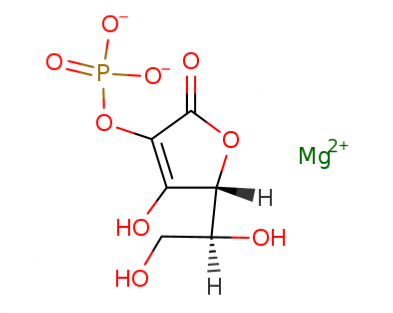
LGB® MAP Magnesium Ascorbyl Phosphate
Related Products







